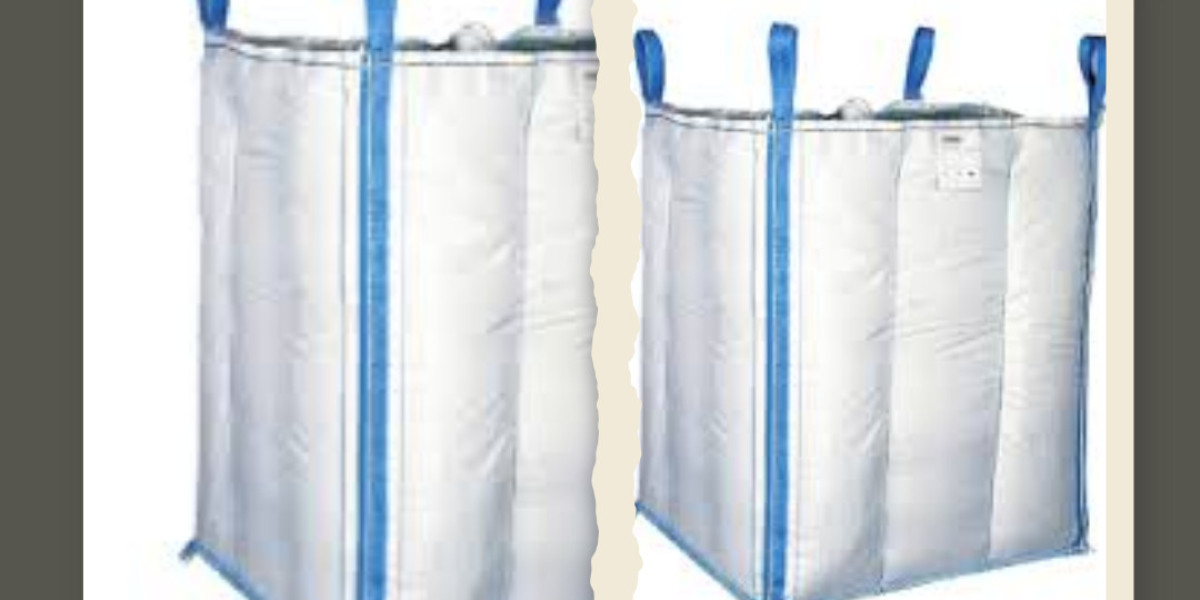Ventilated bulk bags, also known as ventilated FIBC (Flexible Intermediate Bulk Containers) bags, have gained considerable popularity in the packaging and transportation industries due to their numerous advantages. These bags are specially designed to facilitate the safe and efficient storage and transport of bulk materials while promoting airflow. This airflow is particularly beneficial for products that require ventilation, such as agricultural products, grains, and other organic materials. The use of ventilated bulk bags ensures that these products remain dry, free from mold, and in optimal condition during transport.
Ventilated bulk bags are manufactured with mesh panels or perforations that allow air to circulate through the contents. This simple yet highly effective design can make a significant difference in terms of product quality and storage efficiency. In this article, we will delve into the key benefits of using ventilated bulk bags for bulk packaging and how they can improve the logistics and storage processes for various industries.
Improved Airflow and Reduced Moisture Build-Up
One of the primary advantages of ventilated bulk bags is their ability to improve airflow, which is crucial for products that are sensitive to moisture. When bulk products, such as grains, seeds, and certain chemicals, are stored or transported in environments where humidity is high, there is a risk of moisture build-up. This moisture can lead to product deterioration, mold growth, and even spoilage.
Ventilated bulk bags are designed to mitigate these issues by allowing air to circulate through the bag, preventing moisture from accumulating. The mesh sides or perforated panels ensure continuous ventilation, helping to maintain the freshness of the product and reducing the risk of mold or mildew growth. For companies dealing with agricultural products, this is an essential feature that enhances product longevity and quality.
Cost-Effective Bulk Packaging Solution
Another compelling reason to use ventilated bulk bags is their cost-effectiveness. When compared to traditional packaging methods such as wooden crates, metal containers, or sealed plastic bags, ventilated bulk bags are relatively inexpensive. They are lightweight, which reduces shipping costs, and they can be easily folded or compressed when not in use, saving space during storage.
Additionally, the versatility of ventilated bulk bags allows businesses to use the same type of packaging for a variety of products. This eliminates the need for investing in different packaging solutions for each product type. Ventilated bulk bags are a practical and economical choice for industries that need to handle bulk materials regularly.
Versatility in Applications
Ventilated bulk bags are incredibly versatile and can be used for a wide range of applications across various industries. These bags are commonly used for the packaging and transportation of agricultural products such as grains, fruits, vegetables, and seeds. However, they are also suitable for packaging industrial materials, chemicals, and other products that require ventilation to maintain their quality.
In the agricultural industry, for example, grains and cereals are often packaged in Ventilated FIBC bags to ensure proper air circulation, preventing moisture build-up and maintaining the integrity of the product. Similarly, in the chemical industry, certain substances need to be kept dry and ventilated to prevent contamination or degradation. Ventilated bulk bags offer the flexibility to handle both organic and non-organic materials, making them a valuable tool for a wide array of bulk packaging needs.
Enhanced Durability and Strength
Ventilated bulk bags are made from high-quality woven polypropylene, which is known for its strength and durability. This material ensures that the bags can withstand the rigors of transportation and handling without tearing or breaking. The strong structure of ventilated FIBC bags allows them to carry heavy loads, making them ideal for packaging large quantities of bulk materials.
The bags are also resistant to abrasion, making them suitable for use in harsh environments or when handling rough materials. Whether used in a warehouse, at a construction site, or during transportation, ventilated bulk bags provide a reliable and durable packaging solution for a variety of industries.
Space Efficiency and Easy Handling
The design of ventilated bulk bags offers significant advantages when it comes to space efficiency and ease of handling. These bags are designed to maximize storage capacity while maintaining their structural integrity. When filled, ventilated FIBC bags are easy to stack and store, making them ideal for warehouses and other storage facilities where space is limited. Their ability to hold large quantities of product while occupying minimal space helps businesses optimize their storage capabilities.
Additionally, ventilated bulk bags are equipped with lifting loops, making them easy to handle using forklifts or cranes. This feature simplifies the loading and unloading process, reducing the need for manual labor and increasing overall efficiency. The convenience of handling ventilated FIBC bags makes them a preferred choice for businesses in industries that require fast and efficient packaging and transportation.
Environmental Benefits of Ventilated Bulk Bags
As businesses and consumers alike become more conscious of environmental issues, many industries are seeking packaging solutions that are both effective and eco-friendly. Ventilated bulk bags are an environmentally responsible option for bulk packaging, as they are reusable, recyclable, and made from materials that have a minimal environmental impact.
These bags are typically made from polypropylene, a recyclable material that can be reused multiple times. This reduces the need for single-use packaging, such as cardboard boxes or plastic containers, which contribute to environmental waste. By choosing ventilated bulk bags, businesses can reduce their carbon footprint and contribute to sustainability efforts.
Customization and Branding Opportunities
Ventilated bulk bags offer ample opportunities for customization, allowing businesses to tailor the packaging to meet their specific needs. The Ventilated bulk bags manufacturer in various sizes, colors, and designs to accommodate different types of products. This level of customization ensures that businesses can select the perfect bag for their product while enhancing the visibility and appeal of their brand.
In addition to size and design, companies can also print logos, product information, and other branding elements directly on the bags. This creates an opportunity for businesses to promote their brand while simultaneously providing an efficient and effective bulk packaging solution. Customization options make ventilated bulk bags not only a functional packaging solution but also a marketing tool.
Increased Safety and Security
Ventilated bulk bags contribute to the safety and security of the packaged products during transport and storage. The secure construction of the bags ensures that the contents remain protected from external elements such as rain, dust, and other contaminants. The strong polypropylene material used in ventilated FIBC bags also ensures that the contents are securely contained, reducing the risk of spills or contamination.
In industries where hazardous materials or chemicals are being transported, ventilated bulk bags provide an added layer of protection. They prevent the exposure of these materials to moisture, which could lead to chemical reactions, degradation, or other safety hazards. The durability and strength of these bags ensure that products remain secure and safe throughout the entire shipping and handling process.
Conclusion: The Future of Bulk Packaging
In conclusion, ventilated bulk bags offer a wide range of advantages that make them an ideal choice for bulk packaging in various industries. From improved airflow and moisture control to cost-effectiveness, versatility, and environmental benefits, these bags provide an efficient and reliable solution for transporting bulk materials.
As industries continue to evolve and demand more efficient and sustainable packaging solutions, ventilated bulk bags will play an essential role in shaping the future of bulk packaging. By working with a reputable ventilated bulk bags manufacturer and Ventilated bulk bag supplier, businesses can ensure that they are utilizing the most effective packaging solution for their needs. Whether in agriculture, chemicals, or other bulk material industries, ventilated FIBC bags offer the perfect balance of strength, safety, and performance.
Frequently Asked Questions (FAQs)
1. How do ventilated bulk bags help with the transportation process?
Ventilated bulk bags are easy to handle and transport. They are lightweight, making them cost-effective for shipping, and they can be stacked and stored efficiently, saving space in warehouses and transport vehicles. The bags' strong lifting loops also make it easy to load and unload them using forklifts or cranes.
2. Are ventilated bulk bags safe for handling hazardous materials?
Yes, ventilated bulk bags can be used for handling hazardous materials, provided that the materials are not overly sensitive to air exposure. They can help maintain the integrity of the materials by preventing moisture and contamination, which is especially important for chemicals and certain industrial products.
3. How do I maintain ventilated bulk bags?
Maintaining ventilated bulk bags involves inspecting them regularly for any damage or wear. Clean them according to the manufacturer's guidelines to remove dirt or debris. After use, ensure that the bags are stored properly to avoid damage. Proper handling and maintenance will extend the lifespan of the bags.















